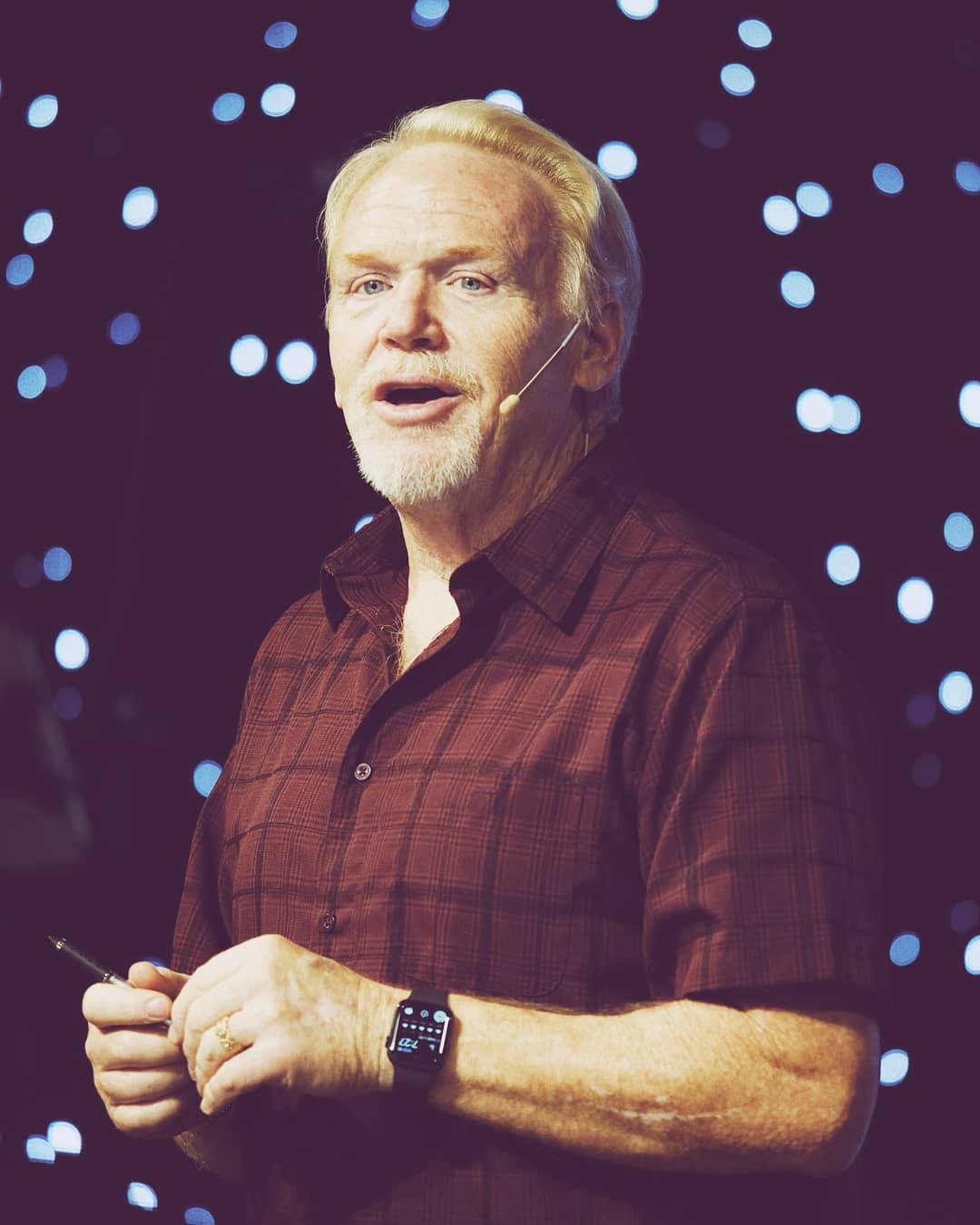Before You Go…..
…..Schedule your FREE 30 Minute Zoom Consultation
No Obligation!
Let’s connect to chat and pray!

Not sure if a church consultant is really needed at your church? Use our FREE Church Assessment Tool to find out.
Schedule your FREE, no obligation, thirty (30) minute Zoom initial consultation.
Utilizing a process we call “Virtual Church Consulting” we work with you through a series of steps to help pinpoint problems and offer solutions. This all online church consulting method is effective and affordable.
Your website is the “digital foyer” for the church. It is the first impression for almost everyone that visits your church.
Demographic information is helpful in getting an overview of what is happening in your community.
Church marketing is a tool to help people who are in need of what your church offers to be able to connect with you.
An outreach strategy is a specific set of tactics intended to ultimately attract new people to your church.
Steve Lawes is a Certified Church Consultant. He has been the lead Pastor of Keys Vineyard Church in Big Pine Key since 1992. He has a Bachelors Degree in Bible and Theology from Berean University and Masters and PhD Degrees from Atlantic Coast Theological Seminary. He lead the Cuba Missions Team for Vineyard Missions from 1995-2005 and traveled to Cuba more than twenty times helping to plant churches and build up local leaders. He served as the South Florida Area Leader for the Association of Vineyard Churches for ten years. He also founded the Jesus Moment Bible Institute and Seminary in 2014 which has a student enrollment of over 2000. He has written three devotional books, Daily Psalt Intake, Daily Sage Intake and Daily Strength Training which are now out of print but are currently available as free e-books.

We are starting a new series called “Kingdom Revealed”. This series will deepen the storyline of the Bible that we introduced in our “Sword Sharpening” series. In Kingdom Revealed, we will focus on the events of the first two chapters of Genesis.
Genesis, the Bible’s first book, is foundational to understanding His Story. It sets the stage, introduces critical themes, and establishes the nature and character of God. At the heart of its first chapter, two profound themes emerge: God is the one who brings form to the formless and fills what is empty.
Genesis 1:2 (NIV)
2 Now the earth was formless and empty, darkness was over the surface of the deep, and the Spirit of God was hovering over the waters.
Genesis Chapter 1:2 describes the earth as “formless and empty.” It presents a picture of chaos and absence in a world without structure, distinction, or content. And then, with a few words, “Let there be light,” God initiates the process of bringing order and form to this chaos.
During the first three days of creation, God separates light from darkness, waters above from waters below, and land from sea. In each of these creative days, God is shaping, defining, and bringing order. The universe moves from pre-creation chaos to a world with clear boundaries and distinctions.
Once the world has been shaped and formed, God begins to fill His now-formed world. He fills the skies with birds, the seas with fish, and the land with animals. The act of filling complements the act of forming. It’s not enough for the world to have structure; it must also have content, vibrancy, and life.
The crowning act of God’s creation is the making of humans. In contrast to other creatures, humanity is made “in the image of God,” and the description of His creation changes from “good” to “very good.” This divine imprint gives humans a unique role and responsibility in this newly formed and filled world. They are to be stewards, reflecting God’s nature as they care for and cultivate the world around them.
Make plans to join us this weekend at Keys Vineyard Church in person or online as we dive deep into Genesis Chapter 1, which will help set up a foundation for reading and understanding all of His Story.
Steve Lawes is a Church Consultant and also provides coaching for pastors, churches, ministries and church planters.

We are in a series called “Sword Sharpening” and looking at how to make the most of your time with the Bible. We are ending this series today by looking at a verse we started with and said we would come back and look at it in context.
Mark 12:24 (NIV)
24 Jesus replied, “Are you not in error because you do not know the Scriptures or the power of God?
Before we get to the verse I mentioned in the intro, let’s do a quick wrap-up of the main points of this series. We started the series by saying:
The Bible is pointing to Jesus. The Bible is a library, not just a book. The Bible is written for us but not to us. Never read a Bible verse. Context, context, context. (We reviewed these, which you can view in Sword Sharpening Part 14.)
Then, we broke the Bible storyline into eight sections.
Kingdom Revealed. Kingdom Rebellion. Kingdom Covenant. Kingdom Foreshadowed. Kingdom Coming. Kingdom Incarnate. Kingdom Tension Kingdom Consummated. (We also reviewed this in Sword Sharpening Part 14.)
Then, over the last few weeks, we have added these ideas:
Everything we do must be grounded in and founded on love as we learn to love well. Then, we looked at a flow chart to help us see how His Story fits into history. (You can see this in Sword Sharpening Part 15.)
Then we talked about how we need to deal with hard Bible verses in context by being like the Bereans and digging into the hard-to-understand verses and not like Marcion by just taking the parts of the Bible we like and getting rid of or ignoring the rest.
That wrap-up contains what we hoped to convey in this Sword Sharpening series. As we end the series, let’s go back to the beginning and look at the verse we have promised to return to since we started the series.
Mark 12:18–27 (NIV)
18 Then the Sadducees, who say there is no resurrection, came to him with a question. 19“Teacher,” they said, “Moses wrote for us that if a man’s brother dies and leaves a wife but no children, the man must marry the widow and raise up offspring for his brother. 20 Now there were seven brothers. The first one married and died without leaving any children. 21 The second one married the widow, but he also died, leaving no child. It was the same with the third. 22 In fact, none of the seven left any children. Last of all, the woman died too. 23 the resurrection whose wife will she be, since the seven were married to her?” 24 Jesus replied, “Are you not in error because you do not know the Scriptures or the power of God? 25 When the dead rise, they will neither marry nor be given in marriage; they will be like the angels in heaven. 26 Now about the dead rising—have you not read in the Book of Moses, in the account of the burning bush, how God said to him, ‘I am the God of Abraham, the God of Isaac, and the God of Jacob’? 27 He is not the God of the dead, but of the living. You are badly mistaken!”
In this passage, Jesus is asked questions from the Sadducees, attempting to trap Him in His words. The questions were not even honest because the Sadducees denied the reality of a future resurrection (which is why they are sad, you see). They also didn’t believe in angels. Jesus’ response not only answered their question but also confronted their error concerning the future resurrection and the existence of angels.
Mark 12:24–25 (NIV)
24 Jesus replied, “Are you not in error because you do not know the Scriptures or the power of God? 25 When the dead rise, they will neither marry nor be given in marriage; they will be like the angels in heaven.
He proceeds to prove, from the Scriptures, that there is life after death and there will be a resurrection. Quoting from Exodus 3:6, Jesus says:
Mark 12:26–27 (NIV)
26 Now about the dead rising—have you not read in the Book of Moses, in the account of the burning bush, how God said to him, ‘I am the God of Abraham, the God of Isaac, and the God of Jacob’? 27 He is not the God of the dead, but of the living. You are badly mistaken!
Jesus points to God identifying Himself as the God of Abraham, Isaac, and Jacob. Since God said, “I am” their God (present tense), and since “He is not the God of the dead but of the living”, the patriarchs are still alive, and God is still their God.
People will not marry or be given in marriage in the new creation, but that does not mean people will not remember their earthly relationships. Also, being “like the angels in heaven” does not mean that people will become angels, only that they will be like angels regarding marriage. We will look deeper into this passage this weekend at Keys Vineyard Church, so please join us in person or online.
We hope this series has encouraged you to spend time with the Bible. Spending time doing other things is easier, but we need to know what is in the Bible. The world needs us to understand what is in the Bible and to be able to talk about it.
2 Timothy 3:14–17 (NIV)
14 But as for you, continue in what you have learned and have become convinced of, because you know those from whom you learned it, 15 and how from infancy you have known the Holy Scriptures, which are able to make you wise for salvation through faith in Christ Jesus. 16 All Scripture is God-breathed and is useful for teaching, rebuking, correcting and training in righteousness, 17 so that the servant of God may be thoroughly equipped for every good work.
Steve Lawes is a Church Consultant and also provides coaching for pastors, churches, ministries and church planters.

We are in a series called “Sword Sharpening” and looking at how to make the most of your time with the Bible. This week, we continue discussing how to deal with difficult Bible verses. When you read the Bible, you will find some things that are not always easy to deal with.
Sometimes, as people read the Bible, they are turned away from, not toward God. This often results from not understanding how His Story ties together and how to look for context. When you read a difficult passage, you must consider the context. I suggest always holding in tension what we learned when we looked at the Kingdom Revealed section of this series.
In the garden, everything was perfect. There was relational harmony. There were no problems of any kind. This is the heart of God. An ideal place on the planet where heaven and earth meet and where God dwells with his divine and human families. Everything that comes after the Fall is not what God wanted. After the fall, God is dealing with the consequences of human depravity. All of the evil and brokenness result from us choosing to go our own way. You must hold the idea of free will in tension as you read the problematic parts of the Old Testament.
God gave us free will. The ability to make choices. Why? He wants to be in relationship with people who want to be in a relationship with Him. Not because they have to but because they choose to.
As a result of our choices, the planet is in the shape it is in. Rather than take in the reality that the brokenness is our fault, we find it easier to blame God. People often ask, “How could a loving God do or allow that”? It was the height of love to give us the ability to choose. We choose wrongly, and the brokenness, the evil, and the depravity are all on us. None of it is what God wanted.
Part of the underlying story is that we are hard-hearted and keep going our way instead of His. We need heart transplants. And that is what is accomplished when Jesus comes the first time and defeats the power of sin and death. When He sends the Holy Spirit, we can now change.
Ezekiel 36:26–278 (NIV)
26 I will give you a new heart and put a new spirit in you; I will remove from you your heart of stone and give you a heart of flesh. 27And I will put my Spirit in you and move you to follow my decrees and be careful to keep my laws.
Don’t give up on the Bible because you find it hard to read or understand why God does things or allows things that don’t seem to fit how you think God should be. Instead of turning away from the Bible, dig deeper into it. Look for the context of the hard verse and think about how it fits into the whole story. This verse from the Psalms captures the heart of God and the idea is repeated many times in other verses in the Bible:
Psalm 86:15 (NIV)
15 But you, Lord, are a compassionate and gracious God, slow to anger, abounding in love and faithfulness.
Another thing to remember is that Jesus loved the Bible. The Bible is central to His life and ministry. We see Jesus pointing to and drawing from the Bible throughout the gospels. Jesus is highlighting the truthfulness and authority of the Bible as He uses it to change people’s lives.
We will add much more to this at Keys Vineyard Church this weekend, so join us in person or online.
Steve Lawes is a Church Consultant and also provides coaching for pastors, churches, ministries and church planters.
“Steve and his team at Keys Vineyard Church have built a church that has done an inspiring job reaching their community. Steve is a treasure trove of experience and has continued to prioritize learning and growth throughout his more than 30 years of ministry in a way few pastors have. You’ll get a lot out of connecting with him!”
“I watched first hand as Steve experienced the devastation of hurricane Irma in his town of Big Pine Key, Florida. The town was destroyed, the church building rendered unusable and the staff impacted personally. I watched a leader rise to the need of his community and minister in a situation that not very many could. He has a powerful voice of experience and wisdom earned the hard way.”
“Steve Lawes is a valuable coach/ mentor. I’ve watched Steve over the last thirty years build a substantial outward focused church with disciples who do what Jesus did. He has inspired leaders of churches with simple/tested ideas to develop leaders and grow churches.
“
“Steve Lawes is an outstanding coach. He is authentic, creative, and personable. He has more cutting edge ideas than any pastor I know in regard to evangelism and meeting the needs of people in his community.”
We are pleased to be partnering with the Jesus Moment Bible Institute and Seminary to be able to offer Free Church Consulting Training. Even if you are not looking to become a certified church consultant, the free church consultant training will be beneficial for your personal ministry.
I t would seem that the answer was obvious. But getting well for the man who had been not well for a very long time meant that he would have to do something different. It is not easy to change, but it always starts with a first step.
Take that first step now by sceduling your no obligation, free thirty (30) minute Zoom meeting with us today. You have nothing to lose and it may be your first step to a new and healthy way of doing and being the church.